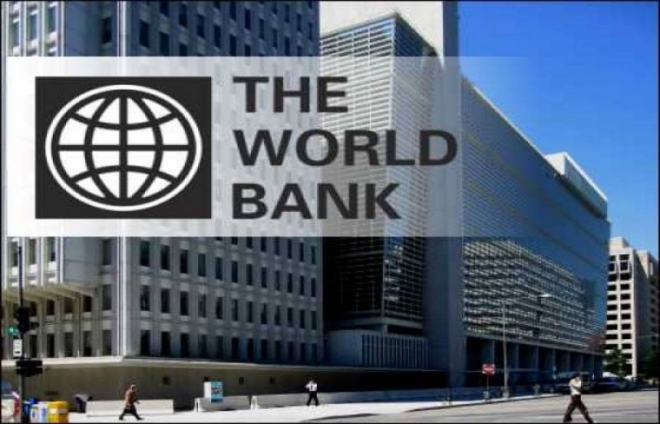A $212 million programme led by the Ghanaian government and supported by the World Bank’s Digital Economy for Africa (DE4A) initiative is working to provide inclusive access to digital technologies to Young Ghanaian leaders.
Ghana has long served as a critical hub for telecoms cables linking Africa and Europe. But limited access and a lack of technical skills have put digital resources out of reach of many Ghanaians.
To this end, the World Bank says the right mix of training, mentoring, and access to online technologies can help Ghanaians when it comes to health services, more opportunities for education, jobs, and entrepreneurship.
This $212 million project, the World Bank, said aims to provide inclusive access to digital technologies, strengthen institutional capacity, and accelerate the use of digital services. As part of a continent-wide push to close the digital divide, it has helped connect multiple universities and has improved broadband bandwidth for more than 200,000 students and teachers to date. The project also provides grants to young entrepreneurs.
The project is supported by the World Bank’s Digital Economy for Africa (DE4A) initiative, which was launched in 2019 to ensure that every individual, business, and government in Africa will be digitally enabled by 2030, in line with the African Union’s Digital Transformation Strategy.
The eTransform project supports digital entrepreneurship programme through three tech hubs—the Ghana Tech Lab, the Ghana Innovation Hub in Accra, and the Kumasi Business Incubator in Kumasi. To date, they have helped boost entrepreneurial skills for over 11,000 young people.
In total, 49 startups have been formed, and more than 1,200 businesses have been supported through access to workspace, mentoring and training. They also help individuals and teams with business ideas progress from the concept stage to entering the market.
The project is inclusive. The Ghana Tech Lab alone has trained more than 5,400 youth in digital skills—half of whom are female. Its base programme starts with a 3-month training period for digital skills.
Some trainees are selected for the incubation program, which combines more advanced digital skills with business education. Some startups formed receive seed money, while other trainees are offered internships with partners.
“When you are in a startup, you can’t implement all of your ideas because some of them may not be feasible, or you may not have the resources to pursue,” said Rosemary Kwofi, Chief Executive of Built Accounting. “But through the eTransform project, we were able to pick out what is potentially feasible…without that, it would likely have taken us much longer to reach the point where we can say ok, this is what works for us.”
The eTransform Ghana project is also improving various government service deliveries using Information Communication Technology (ICT). The project supports 20 Ministries, Departments, and Agencies (MDAs).
For example, the e-Justice program is an initiative of the Ministry of Communications and Digitalisation and the Judicial Services of Ghana. The programme is using digital technologies to transform Ghana’s court system, for example, by digitising cases and applying online solutions to improve court management and administrative and financial systems in the high courts in Accra, the capital.
This involved developing a case management system to improve the effectiveness of the justice process in Ghana.
The eTransform project also lies at the heart of Ghana’s COVID-19 response, where its focus on restoring jobs and livelihoods through digital transformation has made it critical for promoting economic recovery. Its work has contributed to greater internet bandwidth in government offices, health centers, hospitals, schools, and universities in more than 250 districts, including underserved parts of the country.
“This project continues to provide a robust foundation for the comprehensive pandemic digital response in Ghana,” said Kaoru Kimura, a Senior Digital Development Specialist at the World Bank and team leader for the project.
More and more Ghanaians are benefiting from better access to broadband in business, entrepreneurship, health, education, and overall quality of life. In addition, apprenticeship and entrepreneurship training develops skills and links students and job seekers with employment opportunities.
Latest Stories
-
Champions of 2024 Inter-School Reading Quiz tour Mohammed Bin Rashid Library in Dubai
2 hours -
Mahama decouples Youth from Sports Ministry
2 hours -
President Mahama orders immediate suspension of state land transactions
2 hours -
Edward Bawa: NDC left $2.4bn energy debt, NPP aggravated the situation
2 hours -
Joint military police reinforcement deployed in Ejura
2 hours -
Fire guts 3 shops in Ho
2 hours -
Gunmen attack bus in Bolgatanga, leaving several injured
2 hours -
NDC supporters allegedly invade Bui Power Authority, call for staff removal
2 hours -
‘Cutting ministries is about sentiment, not savings’ – Bright Simmons analyses Mahama’s new Cabinet
2 hours -
Walker wants to ‘explore’ Man City exit – Guardiola
12 hours -
Ejura Sekyeredumase MP demands autopsy on resident who died in Police custody
13 hours -
Kusaas Diaspora Union launched to spearhead global unity, development
15 hours -
Bright Simmons: Mahama’s reduction of ministries to 23 amid calls for efficiency, cost-cutting
15 hours -
Maxwell Hanson seeks apology and compensation from Anim Addo over defamation claims
16 hours -
We listen, we don’t judge: What they don’t tell you about being an entrepreneur
16 hours

